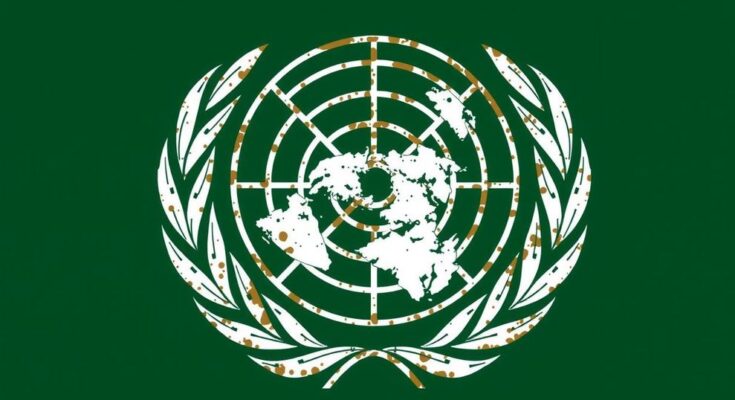The UN Human Rights Committee’s recent report on Pakistan exposes grave concerns over human rights violations, religious intolerance, media repression, and forced conversions of minority girls. It critiques the government’s legislative barriers against freedom of expression and highlights systemic discrimination faced by various communities. The report calls for urgent reforms to protect minority rights and freedom of speech.
A recent report from the United Nations Human Rights Committee has brought to light serious issues regarding religious intolerance, media suppression, and violations against minority communities in Pakistan. The UN expressed its alarm over forced conversions and kidnappings of Hindu and Christian girls, reflecting a dire need for change in the treatment of minority rights within the nation. The ongoing restrictions on media and freedom of expression have raised red flags, with calls for accountability and reforms within the Pakistani government. The committee’s scrutiny arose during a thorough examination of human rights conditions in Pakistan, allowing members to voice significant concerns. They emphasized the legislative obstacles that hinder freedom of expression and the targeted harassment faced by NGOs and political activists, particularly those representing minority views. This underlines how the government’s controls pervade various aspects of civil society, crippling dissent and diversity. Furthermore, the UN committee highlighted the alarming trend of abductions, focusing on cases involving Hindu and Christian girls who have been forcibly converted to Islam. Many instances reportedly go unreported or are improperly handled by the legal system, thereby denying these victims justice and safety. The committee rejected Pakistan’s assertion that only a handful of such incidents occur, emphasizing the urgent need for protective measures and legal accountability. With rising religious intolerance affecting a wide range of communities—such as Shia Muslims, Ahmadis, and others—the UN underscored the dire implications of increasing violent attacks and blasphemy accusations. The atmosphere within Pakistan has grown markedly oppressive for minority faiths, where widespread persecution has become disturbingly common. The committee’s observations pointed to a society growing increasingly hostile to religious diversity. The report further outlined how the Pakistani government restricts citizens’ travel and free movement under the guise of national security, casting a long shadow on dissenting voices. Rights defenders have found their liberties curtailed arbitrarily, and Ahmadis face added scrutiny when applying for essential documents like passports. This discrimination poses a significant barrier to free expression and movement, amplifying the cycle of repression. In addition, the UN criticized how defamation laws are enacted in Pakistan, potentially stifling necessary public discourse. Their concerns extend to recent legislation that allows punitive actions without proper consultation or evidence, raising alarms about future implications for civil liberties. The committee’s detailed scrutiny reflects broader societal issues surrounding the legal landscape and freedom of expression within Pakistan. In summary, the UN report serves as a clarion call for vigilance regarding human rights violations in Pakistan, urging the government to rethink its approach to minority protections and freedom of expression. It implores a thorough review of its policies to ensure transparency, safety, and respect for human dignity for all citizens, particularly the vulnerable and marginalized. As the world observes, the pathway toward justice and reform is fraught with challenges, yet it remains crucial for fostering an inclusive society.
The UN Human Rights Committee is responsible for evaluating compliance with the International Covenant on Civil and Political Rights (ICCPR), which outlines fundamental freedoms and rights. This ongoing review of Pakistan emphasizes critical human rights issues, focusing on the treatment of religious minorities, freedom of expression, and governmental restrictions that stifle civil society. The report sheds light on systemic problems that demand urgent attention and reform in Pakistan’s societal and legal framework.
The UN’s findings sharply criticize Pakistan for its failure to address human rights abuses, particularly concerning religious minorities and freedom of expression. The report underscores an urgent need for transparency, legal reform, and protection for vulnerable populations. It highlights the pressing necessity for the government to confront rising intolerance and discrimination, urging the development of a more inclusive and just society for all individuals, regardless of their religious beliefs.
Original Source: www.thestatesman.com



